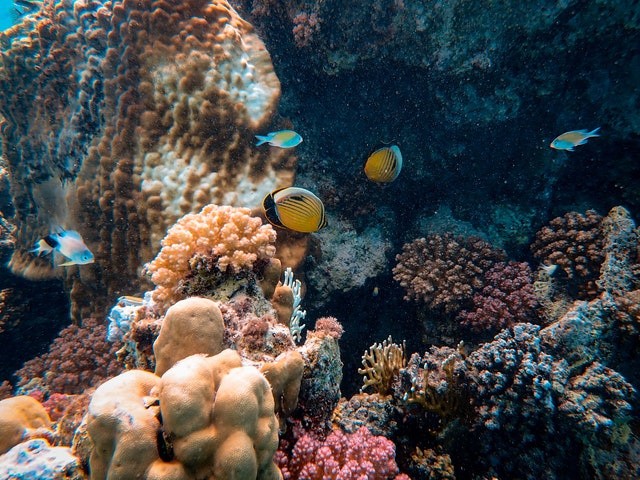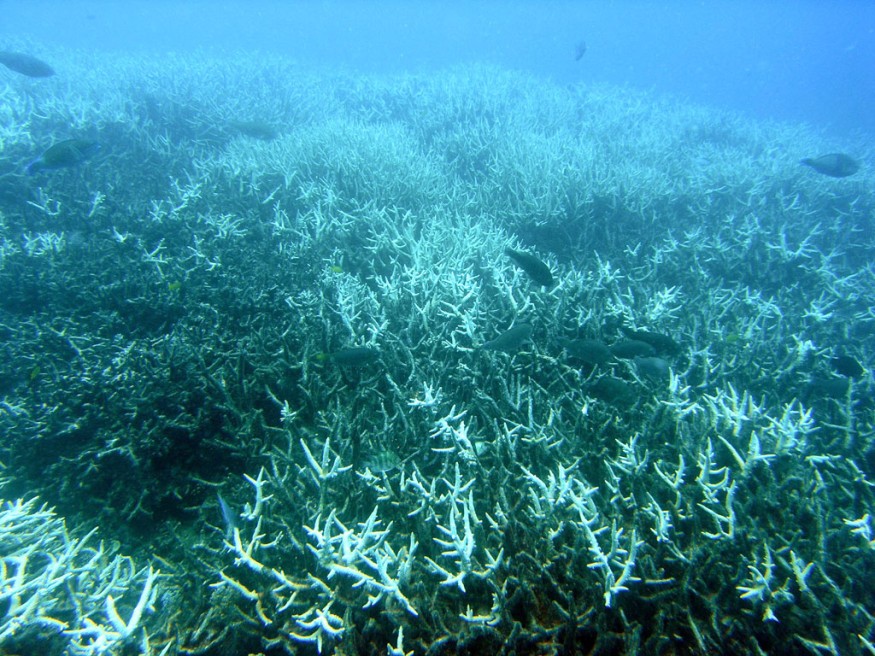In November, scientists discovered an astounding find deep in the ocean off the coast of Tahiti: acres of massive, immaculate, rose-shaped corals blooming from the sea bottom in what's known as the ocean's "twilight zone."

Untouched by Climate Change
According to experts, the fact that such a big and gorgeous coral reef has yet to be discovered highlights how little we know about the world's seas. And, with no proof that the reef has been affected due to the climate problem, it underscores the necessity for immediate action to conserve the ocean's remaining healthy reefs.
The reef, which spread "as far as the eye can see," was "wonderful to watch," according to Alexis Rosenfeld, the photojournalist who led the team of international divers.
He described it as "like a work of art."
Area
According to the UNESCO-led study team, the reef spans approximately two kilometers and may be found at depths of 70 meters (230 feet). This is near the "twilight zone" of the ocean, where there is just enough light to maintain life, but the water transitions into a black abyss below.
"For the first time in a long time, there's a positive narrative about coral reefs in the press," Julian Barbiere, UNESCO's head of marine policy, told CNN.
Related Article : Most of Indian Ocean's Coral Reefs May be Destroyed in Next 50 Years
Climate Change Driven Coral Destruction

The climate problem has caused extensive coral bleaching due to warming waters and acidity. According to experts, climate change, overfishing, and pollution have reduced the worldwide spread of surviving coral by half since 1950, according to experts.
The forecast is similarly bleak, with experts projecting that 70% to 90% of all surviving coral would perish over the next 20 years.
Mapping the Ocean Floor
According to UNESCO, only around 20% of the ocean floor has been mapped thus far. And, until today, the great majority of the planet's known coral ecosystems were thought to stretch only to a depth of 25 meters, indicating how much of the ocean, which covers more than 70% of the Earth's surface, remains unexplored.
"This finding implies that there are many more huge reefs out there in our ocean at depths of more than 30 meters that have yet to be documented," Barbiere added. "It's a perplexing discovery."
"While there is a lot of money going into space travel, there isn't enough money going into studying our backyard, particularly the ocean," Barbiere added. "And I believe that in the next ten years, we should focus on creating the knowledge we need to put the globe on a sustainable path through marine protected zones."
Healthy System
According to researchers, the newly found reef receives adequate sunshine for corals to thrive and breed despite its depth. The corals were even seen reproducing by some of the divers.
Visiting the Reef
Researchers went on the trip in November of last year knowing very little about the reefs in the area but came away with an incredible grasp of how vast, distinctive, and pure the coral is in the area.
The dive crew spent roughly 200 hours researching the coral thanks to scuba rebreathers, which filter carbon dioxide out of exhaled air and recycle much of the wasted oxygen. Rebreathers allow divers to descend deeper and stay on the ocean floor for longer periods. The rebreathers are filled with a unique helium-based gas combination that prevents narcosis or sleepiness.
Left in Awe
Researchers were startled to see that the coral was completely intact and robust, indicating that it had lasted decades, considering that huge reefs require around 25 to 30 years to spread and prosper, according to Barbiere.
The UNESCO team intends to learn more about the coral and how it has survived for so long in the face of increasingly hostile ocean conditions in the hopes of unlocking the key to protecting threatened reefs.
"We believe that deeper reefs will be better protected from global warming," said Laetitia Hédouin of the French National Centre of Scientific Research and the environmental research organization CRIOBE. "As a result, the finding of this reef in such outstanding shape is fantastic news and can encourage future conservation," says the researcher.
For more news update about Environmental News, don't forget to follow Nature World News!
© 2025 NatureWorldNews.com All rights reserved. Do not reproduce without permission.





